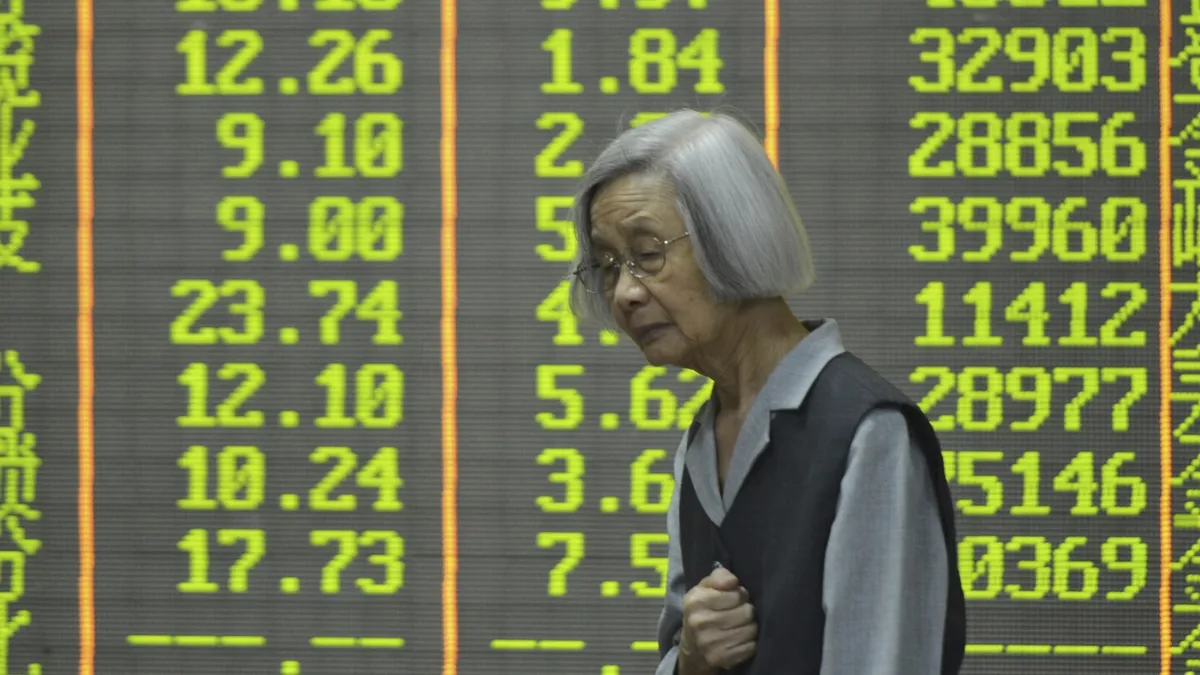
In a dramatic turn of events, the tariff conflict between the world’s two largest economies has intensified, with President Donald Trump narrowing his focus on a direct confrontation with Beijing. On Wednesday, Trump announced a staggering increase in tariffs on Chinese goods, raising them to 125%. This decision comes as he simultaneously rolled back his broader "reciprocal" tariffs on many other nations amidst growing fears of a recession. The escalation locks both nations into a precarious standoff that threatens not only their economies but also global interests.
The stakes in this ongoing trade war have never been higher. The United States and China are already embroiled in fierce competition across various sectors, including artificial intelligence, monetary policy, and overall global influence. Each country is now daring the other to back down first, but this escalating tension raises serious concerns about the shrinking window for diplomacy, even as economic pain deepens for both nations.
Karoline Leavitt, the White House press secretary, emphasized the U.S. stance, stating, “When you punch the United States of America, President Trump is going to punch back harder.” This sentiment illustrates the aggressive posture the U.S. is taking in this trade conflict.
The latest round of tariffs follows a tit-for-tat exchange. After Trump imposed a 34% reciprocal tax on Chinese goods, Beijing responded with the same rate on American exports. In retaliation, Trump raised the tariff by an additional 50 percentage points, prompting another matching hike from China. Currently, U.S. products exported to China face an 84% tax, while imports from China to the U.S. are now subjected to a massive 125% tariff.
In a message on his Truth Social platform, Trump commented on the situation, expressing hope that China would soon recognize that “the days of ripping off the U.S.A. and other countries is no longer sustainable or acceptable.” Treasury Secretary Scott Bessent echoed this sentiment, asserting that Trump’s strategy has always been to confront what he sees as China’s “bad actor” behavior.
Trump’s recent actions have left little room for negotiation with China, as many analysts believe that only a complete capitulation by Beijing would satisfy the U.S. administration. Sun Yun, director of the China program at the Stimson Center, pointed out that Chinese President Xi Jinping is unlikely to concede, noting that such negotiations are rare and have only occurred once in history without prior invitation.
The escalating trade tensions could spill into other domains, raising risks that neither side will de-escalate until significant damage is done. Craig Singleton, a senior fellow at the Foundation for Defense of Democracies, commented, “This is no longer about tariffs alone. It’s a test of wills.”
China, for its part, is not backing down. The Chinese leadership has vowed to resist what they perceive as U.S. bullying. While Trump’s unexpected tariff hikes caught many off guard, China claims to be prepared, having learned from previous trade negotiations during Trump’s first term. The ruling party’s flagship newspaper, People’s Daily, emphasized that China has “rich struggle experience” and assured citizens that “the sky will not fall.”
In response to U.S. tariff actions, China has developed an extensive toolkit to retaliate, including tariffs, export controls, and measures to restrict U.S. businesses from operating within its borders. Melanie Hart, senior director of the Global China Hub at the Atlantic Council, noted that Beijing is now employing this full arsenal against the United States, targeting American farmers and industries while also blacklisting companies.
Despite the heated rhetoric, both nations still express a willingness to negotiate. The People’s Daily made it clear that while China is prepared for a trade war, it does not seek one. “There are no winners in a trade war,” it stated, but underscored that “China is not afraid of a trade war.” As tensions rise, the call for dialogue and negotiation remains crucial for both economies and global stability.